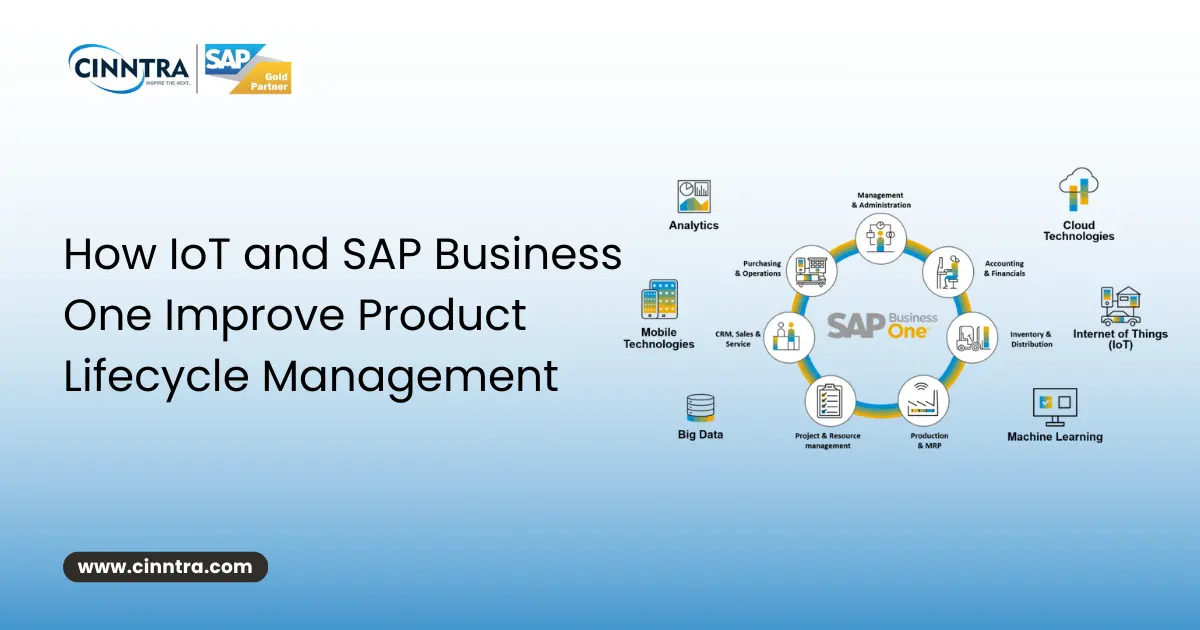New NetSuite Features Build AI into Everyday Processes

NetSuite announced a new set of AI-driven features that can be used for everyday business use. The present capabilities add a new dimension to the way we approach business by improving the existing features of process automation and insights for better decision-making.
NetSuite AI Capabilities built into tools and plugins come at no additional cost to the customers. Thus, it has been called the AI embedded in NetSuite.
Our AI can uplift more data scattered around the whole business by enabling it to perform more with dot precision solutions.
What Are the New Features Introduced by NetSuite AI Solution?
AI updates help improve the finances including NetSuite Financial management. It can review large transaction volumes to spot anomalies that don't comply with past patterns for a closer look.
Further, NetSuite ERP helps make amends in the dashboard to flag invoices, sales orders, entries, and other transactions for potential fixes.
1. Predictive Maintenance
Predictive maintenance is among the best features of NetSuite for utilizing AI to obtain real-time data from the database. This tech predicts the most likely failure of equipment. Further, it helps you improve resource management.
Manufacturers can eliminate unexpected breakdowns to catch the system maintenance needs lower repair costs and better operational efficiency. This proactive approach ensures that production processes remain smooth and uninterrupted for better productivity and cost savings.
2. Demand Forecasting
NetSuite’s AI-driven features demand forecasting by checking market trends, historical sales data, and other economic conditions. These insights allow manufacturers to create accurate forecasts that inform you about production schedules and inventory management. Businesses can align their supply chain operations with actual market demand. It can be achieved by utilizing AI-driven demand forecasting to reduce the risk of overproduction or stockouts.
This capability enables manufacturers to optimize their resources and improve overall responsiveness to market changes.
3. Automated Supply Chain Management
NetSuite’s automated supply chain management transforms how manufacturers operate by optimizing key processes such as order fulfillment and inventory replenishment. Further, AI algorithms analyze supply chain data to identify potential issues by allowing companies to address risks proactively.
This automation ensures timely product deliveries at optimal costs by enhancing overall efficiency. Manufacturers can focus on strategic initiatives while maintaining smooth operational flows by minimizing manual intervention in supply chain activities.
4. Smart Manufacturing Operations
NetSuite integrates AI-driven features to enhance daily manufacturing operations through automation and optimization. Intelligent production scheduling analyzes machine availability, workforce schedules, and production capacity to improve workload management.
It allows manufacturers to maximize output while minimizing waste to increase flexibility in operations. Businesses can achieve greater adaptability by leveraging AI for these tasks in their manufacturing processes.
5. Inventory Optimization
The inventory management features of NetSuite utilize AI to help manufacturers maintain optimal stock levels. The platform automatically adjusts reorder points by analyzing past usage patterns, current demand, and supply trends. This approach reduces costs associated with stock levels while ensuring product availability in the time of need.
Effective inventory optimization leads to improved cash flow and better resource allocation for manufacturers.
6. Improved Efficiency
NetSuite’s AI-driven features significantly enhance manufacturing efficiency by automating routine tasks to minimize manual errors. This leads to quicker production cycles that reduce the likelihood of mistakes. Further, it plays a crucial role in predicting equipment failures to decrease downtime.
Manufacturers can operate more consistently by allowing them to focus on core activities. Thus, you can achieve with less time lost to unplanned interruptions. The overall result is a production process that maximizes productivity to ensure that resources are utilized efficiently.
7. Cost Reduction
The integration of AI with demand forecasting in NetSuite helps manufacturers cut costs by avoiding unexpected expenses. Businesses can prevent costly repairs and downtime by using AI servicing. However, this accurate demand forecasting allows manufacturers to align production with actual market needs by reducing the risk of overproduction.
This efficient resource management lowers operational costs and maintains product quality. It ensures that businesses can operate within budget while meeting customer expectations.
8. Enhanced Decision-Making
NetSuite’s Next Gen AI capabilities provide real-time insights that empower manufacturers to make informed decisions swiftly. Businesses can adjust production schedules by analyzing data trends and market conditions. It responds proactively to changes in demand. Further, this agility is crucial to get ahead in a fast-paced marketplace.
The ability to access actionable insights quickly enables manufacturers to optimize their operations. It aligns resources effectively to make strategic choices that drive growth and profitability.
9. Better Customer Satisfaction
NetSuite helps manufacturers meet customer demands more effectively by utilizing AI for improved demand forecasting and inventory management. Accurate predictions enable timely product availability by reducing the chances of stockouts or delays. Furthermore, automated supply chain processes ensure that products are delivered promptly by enhancing overall service quality.
Satisfied customers are more likely to remain loyal, which leads to repeat business and positive word-of-mouth referrals for long-term success.
10. Scalability
NetSuite’s AI-driven features offer scalability that supports manufacturers to increase complexity in their operations. The system can easily adapt to changing demands by allowing businesses to expand into new markets without disruption. This flexibility is vital for managing multiple production sites efficiently.
As companies evolve, NetSuite’s AI capabilities ensure they can maintain operational effectiveness while accommodating new challenges and opportunities in the manufacturing landscape.
11. Simplifying and Deepening Analytics with AI
NetSuite SuiteAnalytics is a powerful tool that enhances workforce productivity by integrating an AI assistant capable of transforming text prompts into insightful summaries and visualizations. This assistant efficiently retrieves relevant data from workbooks by allowing users to generate meaningful reports and charts with ease. Based on user feedback, the SuiteAnalytics Assistant can also adapt these insights to display different parameters or types of charts by ensuring flexibility in data presentation.
Additionally, the NetSuite Analytics Warehouse is a dedicated cloud data warehouse that features its own AI assistant that can create nearly 50 distinct visualizations using Generative AI. For technical users, Oracle Machine Learning offers the ability to customize machine learning algorithms to enhance performance and output further, catering to specific analytical needs.
12. Turbocharging NetSuite Development and Customizations
NetSuite developers and administrators can significantly enhance platform functionality through SuiteScript by using a powerful customization tool. A new generative AI SuiteScript API allows these professionals to embed Gen AI into their custom extensions by resulting in tailored SuiteApps that address unique business processes. This innovation streamlines the development process and enhances the overall efficiency of custom solutions.
Furthermore, Oracle Code Assist is being optimized for SuiteScript, utilizing large language models on Oracle Cloud Infrastructure to generate code for customizations and extensions automatically. This tool not only generates code but also tests and analyzes by providing valuable insights that boost developer productivity.
Further, NetSuite Prompt Studio enables system administrators to refine AI-generated content quality by customizing format, tone, and creativity levels according to organizational needs. These advancements empower teams to create more effective solutions while reducing development time.
What is The Process of Integrating AI with NetSuite?
Assess Your Current Infrastructure:
Before implementing AI, you need to take the time to evaluate your existing NetSuite setup and business processes. Identify which areas could benefit the most from AI integration. This assessment will help you customize AI solutions to meet specific needs by ensuring they provide maximum value and align with your operational goals.
Clear Objectives
Establish clear objectives for your AI implementation in NetSuite. Whether your focus is on improving data accuracy, automating repetitive tasks, or enhancing customer interactions by having specific goals will guide the implementation process. Setting clear objectives also helps you measure success to ensure that the AI-driven features you choose effectively address your business challenges.
Start with Key Areas
Begin your AI journey by targeting departments that manage large volumes of data or repetitive tasks. Finance departments can benefit from AI in invoice processing and expense approvals. Further, customer service teams can use ticket categorization and response automation. Moreover, focusing on these areas often yields immediate benefits.
Train Your Team
You need to ensure that your team is well-equipped to use AI-driven features within NetSuite effectively. Providing proper training is essential for successful adoption and maximizing the capabilities of AI. Consider offering customized training sessions that focus on specific use cases relevant to your team’s daily responsibilities by enabling them to leverage AI effectively.
NetSuite Support and Resources
It helps you utilize the various resources available through NetSuite, such as tutorials, webinars, and customer support services. Moreover, explore documentation and community forums where you can learn from the experiences of other users. These resources can provide best practices for optimizing your use of NetSuite.
Monitor and Adjust
After implementing AI-driven features, continuously monitor their performance and impact on your operations. Gather insights from this evaluation to make necessary adjustments and optimize the AI functions for better alignment with your business needs. Ongoing assessment will help you adapt to changes and maintain a competitive edge in efficiency.
Plan for Scalability
It’s essential to plan for scalability by selecting AI solutions within NetSuite that can expand and adapt to meet evolving business needs. This forecasting ensures that your AI initiatives remain effective as your organization develops and changes over time.
Make The Most Out of Next-Gen AI in NetSuite!
Integrating Artificial Intelligence (AI) into NetSuite represents a significant advancement in how businesses manage their operations, leading to increased efficiency. AI automates routine tasks that enhance data accuracy to provide valuable insights that improve decision-making at all levels of an organization.
This technology manages financial processes within NetSuite ERP systems to personalize customer interactions in CRM platforms. It helps businesses adapt quickly to market demands to maintain a competitive advantage.
Collaborating with Cinntra can help tailor new features to fit specific business needs. The journey toward a more intelligent and data-driven operation starts with AI in NetSuite. It unlocks new possibilities for innovation and operational efficiency.



1 Comments
Maxie Thaxton
Hi cinntra.com administrator, Your posts are always well-received and appreciated.